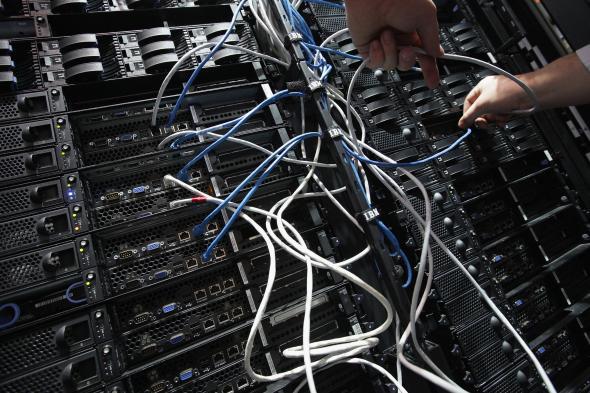Update, October 21, 11:00 a.m.: Internet infrastructure company Dyn acknowledged that a distributed denial of service attack against its systems had caused disruptions. According to Dyn’s post, the disruptions primarily affected customers throughout the “US East.” Dyn claims, “Services have been restored to normal as of” 9:20 a.m. Speaking to Motherboard, Doug Madory, Dyn director of internet analysis, “said that there was ‘no doubt’ that Dyn was the primary target of the attack.
At one point Friday, Bloomberg Technology claimed, “It wasn’t immediately clear if the web outages were related, or whether Amazon Web Services was also the victim of a hack.” But by Friday evening, the site had deleted the line.*
Original post:
Sometime on Friday morning, something went wrong on the internet. Users noticed that a handful of familiar web services started failing to load, more or less simultaneously. Those services included PayPal, Twitter, Pintrest, and WhatsApp.
As of 8:30 a.m., those problems had spread more widely. According to the site Is It Down Right Now?, which monitors service disruptions across the internet, problems had also spread to encompass platforms such as Reddit and news sites including BuzzFeed. And some other sites appeared to be working, but only sluggishly.
The good news? By 9 a.m. many of the disrupted services were already accessible again. Moreover, much of the internet never seems to have gone down in the first place. Google and Facebook, for example, didn’t stop working in the first place, which may speak to what happened.
It seems likely that the problem derives from an issue with Amazon Web Services, the cloud computing platform the provides the backbone for much of the internet. Slate’s director of technology, Greg Lavallee, reports that Amazon Web Services posted a message to its status site this morning indicating that it was “investigating elevated errors resolving the DNS hostname used to access the EC2 APIs.”* Though Amazon is rarely forthcoming with information about service disruptions, the irregularity in question appears to be connected to a Northern Virginia data center.
It’s worth saying that this isn’t the first time such problems have cropped up. A similar early morning outage occurred in 2011, for example, and there have been other instances. We’ve contacted Amazon Web Services for comment and will update this post when we know more.
*Update, Oct. 21, 10:15 p.m.: This piece was updated to reflect that Bloomberg Technology had removed from an article about the outage a line speculating about whether Amazon Web Services was the victim of a hack.
*Correction, Oct. 21: This post originally indicated that Amazon had sent an email notice about the outage at 5:15 a.m. It did not.
